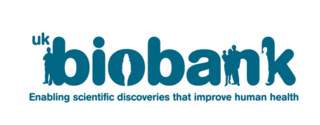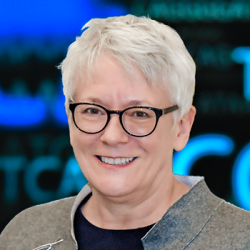
Genetic counseling is the process of investigating individuals and families affected by or at risk of genetic disorders to help them understand and adapt to the medical, psychological and familial implications of genetic contributions to disease. This field is considered necessary for the implementation of genomic medicine. The process integrates:
The Institute of Cancer Research is a public research institute and a member institution of the University of London in London, United Kingdom, specialising in oncology. It was founded in 1909 as a research department of the Royal Marsden Hospital and joined the University of London in 2003. It has been responsible for a number of breakthrough discoveries, including that the basic cause of cancer is damage to DNA.

Hereditary nonpolyposis colorectal cancer (HNPCC) is a hereditary predisposition to colon cancer.

Succinate dehydrogenase complex subunit C, also known as succinate dehydrogenase cytochrome b560 subunit, mitochondrial, is a protein that in humans is encoded by the SDHC gene. This gene encodes one of four nuclear-encoded subunits that comprise succinate dehydrogenase, also known as mitochondrial complex II, a key enzyme complex of the tricarboxylic acid cycle and aerobic respiratory chains of mitochondria. The encoded protein is one of two integral membrane proteins that anchor other subunits of the complex, which form the catalytic core, to the inner mitochondrial membrane. There are several related pseudogenes for this gene on different chromosomes. Mutations in this gene have been associated with pheochromocytomas and paragangliomas. Alternatively spliced transcript variants have been described.

UK Biobank is a large long-term biobank study in the United Kingdom (UK) which is investigating the respective contributions of genetic predisposition and environmental exposure to the development of disease. It began in 2006. UK Biobank has been cited as an important resource for cancer research.

Sir Walter Fred Bodmer is a German-born British human geneticist.

Reproductive medicine is a branch of medicine concerning the male and female reproductive systems. It encompasses a variety of reproductive conditions, their prevention and assessment, as well as their subsequent treatment and prognosis.

Homeobox protein Hox-B13 is a protein that in humans is encoded by the HOXB13 gene.

Olaparib, sold under the brand name Lynparza, is a medication for the maintenance treatment of BRCA-mutated advanced ovarian cancer in adults. It is a PARP inhibitor, inhibiting poly ADP ribose polymerase (PARP), an enzyme involved in DNA repair. It acts against cancers in people with hereditary BRCA1 or BRCA2 mutations, which include some ovarian, breast, and prostate cancers.
The 100,000 Genomes Project is a now-completed UK Government project managed by Genomics England that is sequencing whole genomes from National Health Service patients. The project is focusing on rare diseases, some common types of cancer, and infectious diseases. Participants give consent for their genome data to be linked to information about their medical condition and health records. The medical and genomic data is shared with researchers to improve knowledge of the causes, treatment, and care of diseases. The project has received over £300 million from public and private investment.

Richard Cotton AM was an Australian medical researcher and founder of the Murdoch Institute and the Human Variome Project. Cotton focused on the prevention and treatment of genetic disorders and birth defects.
Sir Douglass Matthew Turnbull is Professor of Neurology at Newcastle University, an Honorary Consultant Neurologist at Newcastle upon Tyne Hospitals NHS Foundation Trust and a director of the Wellcome Trust Centre for Mitochondrial Research.

Ismaa Sadaf Farooqi is a Wellcome Trust Senior Research fellow in Clinical Science, professor of Metabolism and Medicine at the University of Cambridge and a consultant physician at Addenbrooke's Hospital in Cambridge, UK.
Charis Eng is a Singapore-born physician-scientist and geneticist at the Cleveland Clinic, notable for identifying the PTEN gene. She is the Chairwoman and founding Director of the Genomic Medicine Institute of the Cleveland Clinic, founding Director and attending clinical cancer geneticist of the institute’s clinical component, the Center for Personalized Genetic Healthcare, and Professor and Vice Chairwoman of the Department of Genetics and Genome Sciences at Case Western Reserve University School of Medicine.

The He Jiankui affair is a scientific and bioethical controversy concerning the use of genome editing following its first use on humans by Chinese scientist He Jiankui, who edited the genomes of human embryos in 2018. He became widely known on 26 November 2018 after he announced that he had created the first human genetically edited babies. He was listed in the Time's 100 most influential people of 2019. The affair led to ethical and legal controversies, resulting in the indictment of He and two of his collaborators, Zhang Renli and Qin Jinzhou. He eventually received widespread international condemnation.
Rosalind Anne Eeles is a Professor of Oncogenetics at the Institute of Cancer Research and clinician at the Royal Marsden NHS Foundation Trust. She is a leader in the field of genetic susceptibility to prostate cancer, and is known for the discovery of 14 genetic variants involved in prostate cancer predisposition. According to ResearchGate, Eeles has published more than 500 articles in peer-reviewed journals, with over 34,000 citations and an h-index of 92. Eeles was elected a Fellow of the Academy of Medical Science in 2012. She was awarded a National Institute for Health Research Senior Investigator Emeritus in 2014.

Benjamin James Challacombe is a British consultant urological surgeon at Guy's & St Thomas' Hospitals, and at King’s College London, who specialises in the treatment of kidney and prostatic disease using robotic surgery. In 2005, he was part of the team that published the results of a randomised controlled trial of human versus telerobotics in the field of urology and renal transplant, one of the first of its kind.

Christine Patch is a nurse and genetic counsellor. She is a Principal Staff Scientist in Genomic Counselling in the Society and Ethics Research group, part of Wellcome Connecting Science, based on the Wellcome Genome Campus. She is also the Clinical Lead for Genetic Counselling at Genomics England, and a former President of the European Society of Human Genetics.
Professor Patrick Francis Chinnery, FRCP, FRCPath, FMedSci, is a neurologist, clinician scientist, and Wellcome Trust Principal Research Fellow based in the Medical Research Council Mitochondrial Biology Unit and the University of Cambridge, where he is also Professor of Neurology and Head of the Department of Clinical Neurosciences.
Alexander (Sasha) Gusev is a computational biologist and an Assistant Professor of Medicine at Harvard Medical School.














